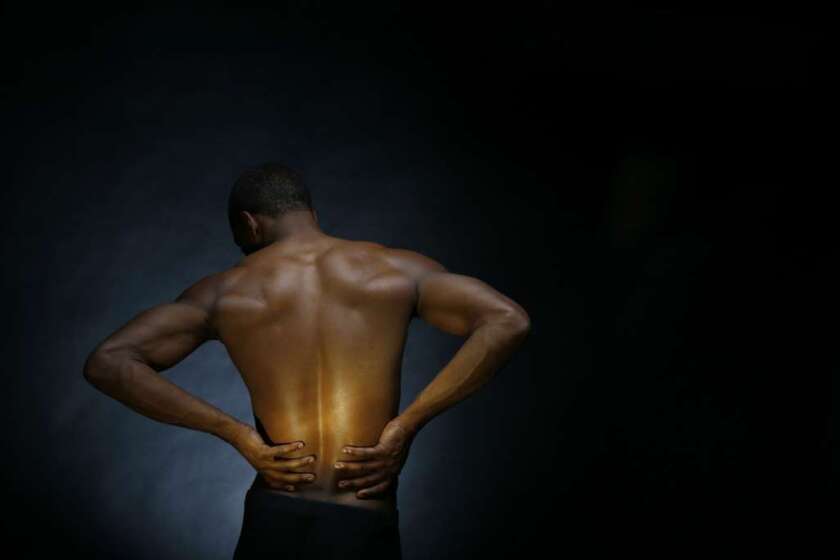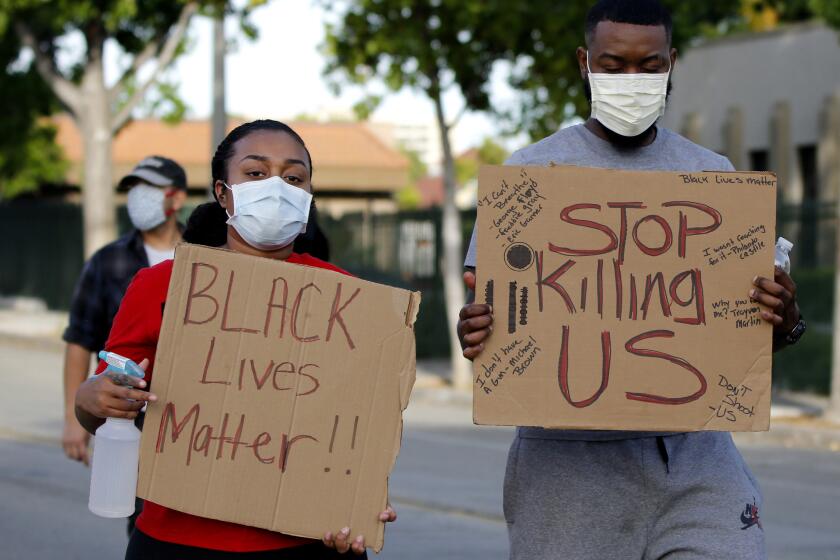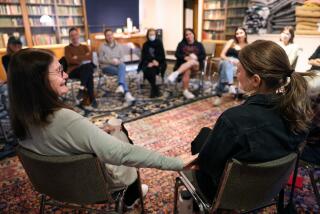- Share via
Death positivity, death doulas, death cafes — these may not be mainstream terms, but over the last 10 years, there’s been a surge in what’s become known as death positive work.
And now the work of Black practitioners in the burgeoning field is intersecting with America’s racial reckoning and the Black Lives Matter movement.
Death positivity is an umbrella term covering many areas of the industry. Death doulas holistically support those who are dying or preparing for death. Feminist funeral directors are breaking down barriers in male-dominated funeral homes. Grief guides support families who have recently lost a loved one. Death cafes are cropping up across the country and serve as spaces where people can get together to chat over tea and snacks about mortality.
Although many people of color have done end-of-life work for generations, the modern death positive movement is dominated by white voices. In the wake of the deaths of George Floyd, Breonna Taylor, Ahmaud Arbery and the recent Black Lives Matter protests, six Black death positive leaders decided to come together for a public talk to discuss racism in their industry and how to fight against it. Death doula Alua Arthur led the charge.
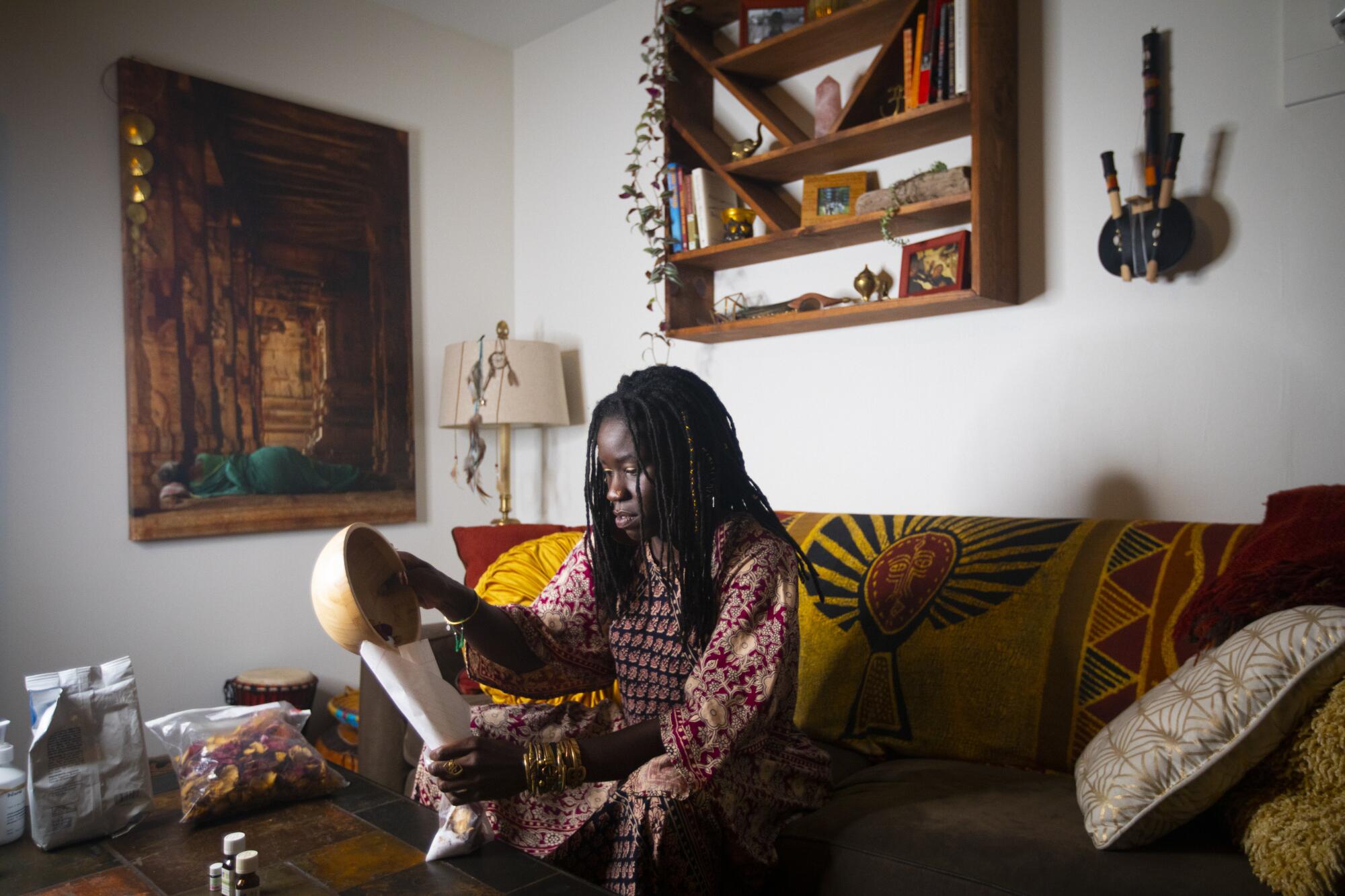
The talk was called, “Sayin’ It Louder: A Conversation About a Good Death in a Racist Society.” More than 1,800 people tuned in to watch it on Zoom on June 10.
“I’m a very visible face in the death and dying space,” said Arthur, who has been interviewed for various print pieces , videos, made TV appearances and given speeches on death doula work. “But Black people and people of color are not a monolith, and it’s very important that other people join in this conversation.”
The idea behind the broader death positivity movement is that discussing death and actively preparing for one’s death can lead to a richer, fuller and freer life, even if death is not imminent. And the numbers are growing. A community deathcare group on Facebook has over 8,000 members. The Order of The Good Death Facebook group has been “liked” by more than 150,000 people.
Death doulas in particular have seen a surge in popularity as more people approaching the end of their lives seek practical and emotional support. Just as birth doulas prepare clients for delivery, death doulas help people prepare for death, often with a spiritual bent. That can include helping clients decide what songs they would like to have playing during their final hours or, on a more practical level, working with someone on their advance directives and wills. A death doula’s work differs from hospice care in that it is independent of any medical system. The hashtag #deathdoula pulls up more than 19,000 posts on Instagram, while #deathpositive pulls up 60,000.
As a death doula, Arthur has spent a lot of time thinking about what a “good death” means — how racial bias and racism can both be the cause of death and affect how people die, just as it affects how we all live. During the “Sayin’ It Louder” talk, she and the other panelists discussed how a “good death” is often synonymous with a white death. “The American dream is shaped by the white experience,” said Arthur, “and the way we conceive of a good death is largely based on the values we hold for living a good life.”
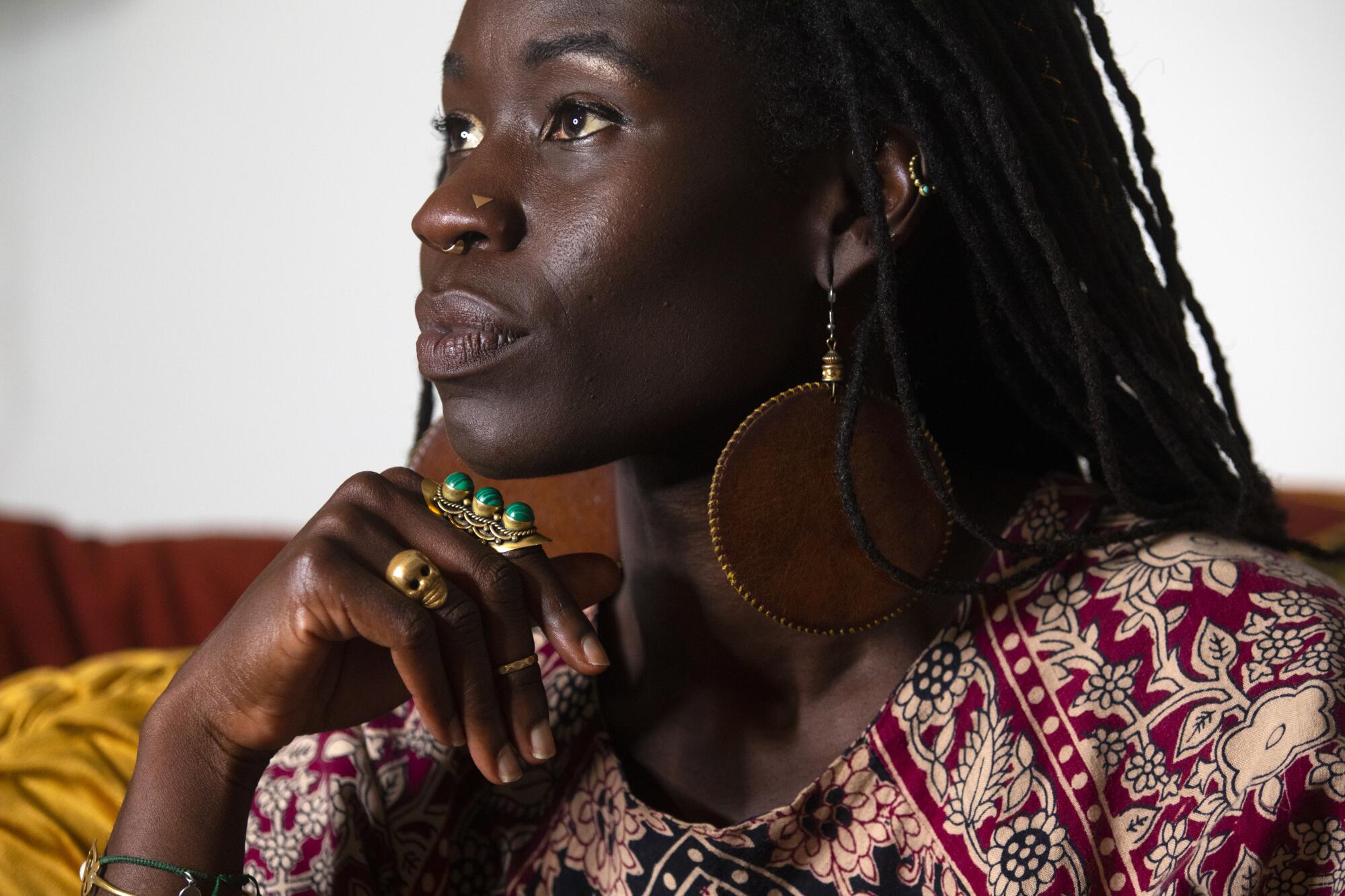
For many, a “good life” ends with excellent medical care. However, it has been well documented that the medical field is rife with implicit racial bias. A review from 2017 in the Academic Emergency Medicine journal found that physicians, specifically white physicians, have a preference for white patients.
An example of the disparity is the way in which pain medication is administered to Black patients. A National Institutes of Health meta-analysis from 2012 synthesized and assessed 20 years of pain treatment in the United States. It found that Black people received less pain medication than other groups.
Does the blood of black people clot more readily than that of white people?
Oceana Sawyer is an end-of-life doula based in the Bay Area and was one of the “Sayin’ It Louder” panelists. Part of Sawyer’s job as a doula is to push against racial biases and advocate for her clients as they approach death.
“I was working with a woman who was dying,” she said, and “I had to convince the hospice nurse to give her [more] morphine, they were giving her these small bits of morphine.” Her client, she added, was in severe discomfort. “I didn’t want her to be fighting for air. That doesn’t happen when I work with white people.”
The medical inequities, said Sawyer and the rest of the panel, have taken on a new urgency in recent months. The COVID-19 pandemic has disproportionately affected communities of color. APM research lab found that Black Americans have experienced the highest overall mortality rates as a result of COVID-19. In California, Black people are dying at twice the rate of white people.
“The sheer stress of being born into a racist society, and the resulting psychological, emotional and physical stresses, will make the body more susceptible to illness like the coronavirus,” Sawyer said.
Racial bias continues after death too. During the “Sayin’ It Louder” talk, Joél Simone Anthony, a Black funeral director and sacred grief practitioner based in Atlanta, brought up racial discrepancies she has witnessed. “I used to work in a funeral home with a lot of white male professionals,” Anthony said. “A woman came in who had died and she had box braids. The family decided that, for the funeral, they wanted her braids taken out. They wanted to remember her with her natural hair.”
Anthony later found a director of the funeral home cutting the box braids out of the woman’s hair at her scalp — cutting all her hair off. He didn’t know the difference between removing braids and cutting them out.
In an effort to inform her colleagues and other funeral directors, Anthony has developed online cultural competency courses for funeral professionals. “They are designed to educate professionals about caring for black people’s hair and skin,” she said.
A major part of death positive work is focused on honoring and respecting the person who is dying. Small gestures can be deeply meaningful and differ depending on one’s cultural background.
“I was working with a client called Ms. Beverly Leacock,” said Arthur. “Ms. Beverly is Black, and I understand nuances of being with her, like calling her Ms. Beverly, rather than calling her by [only] her first name, that’s something we do in the Black community. It’s an important sign of respect.”
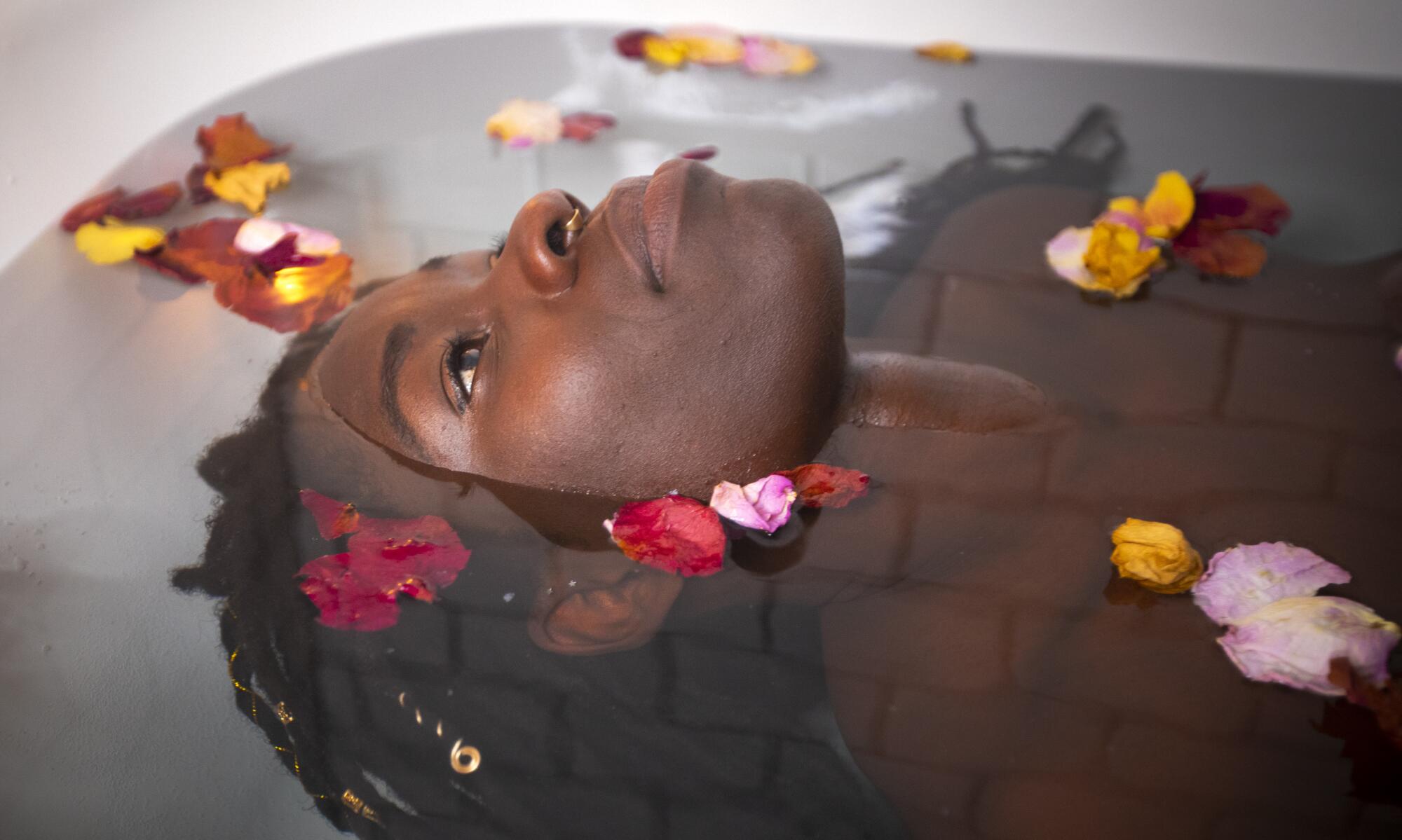
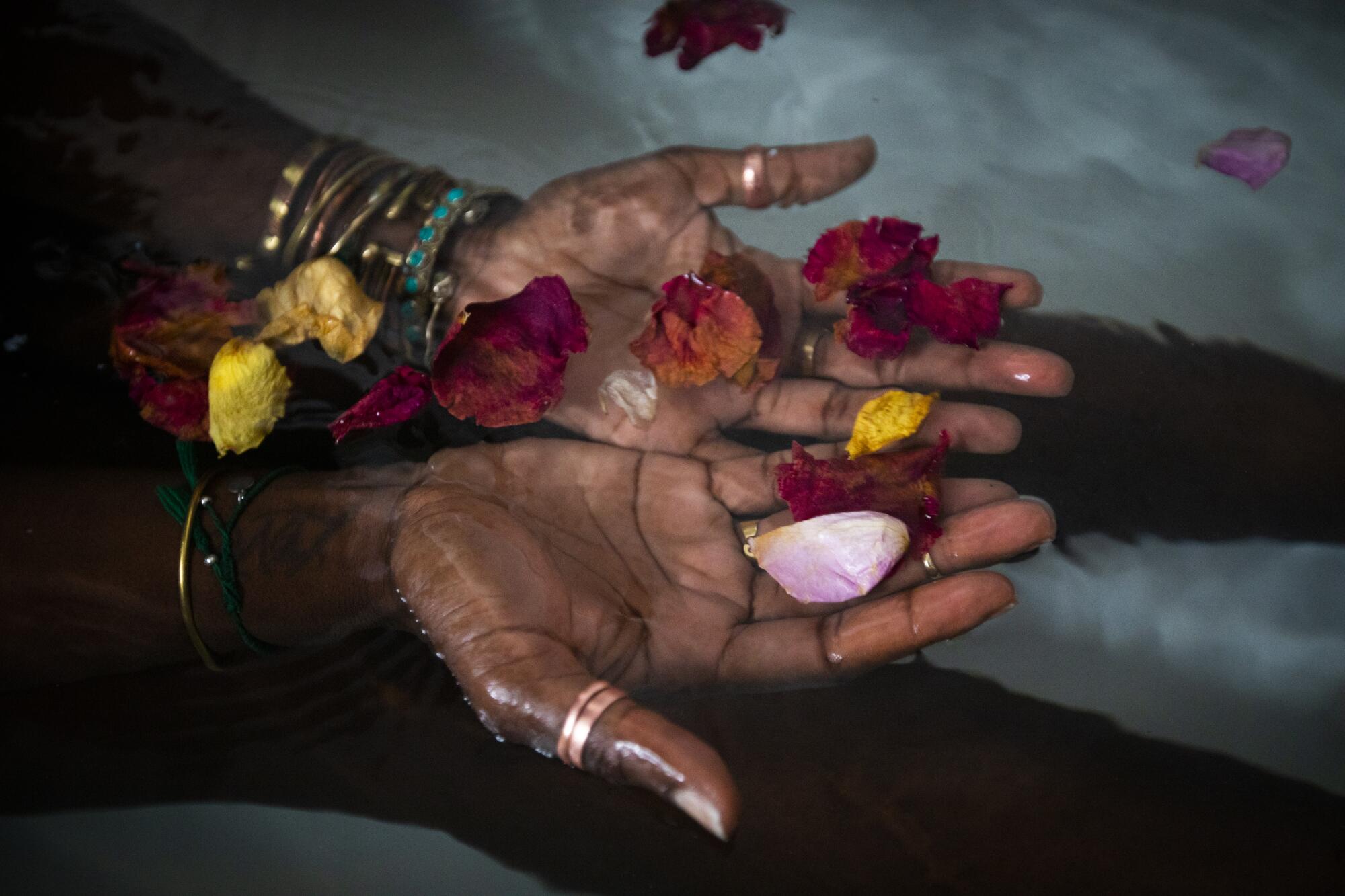
Though the work of a death doula may ostensibly seem quiet, peaceful and calm, it’s far from passive. Arthur said she considers herself to be an activist. “In my work, I advocate for the whole person,” she said. “I am honoring the person for exactly who they are and where they are at — it’s activism cloaked in compassion. To me that’s an act of revolution.”
A very different type of death, that of Black people at the hands of police officers, has ushered in a new era of revolution. The deaths of Floyd, Rayshard Brooks and others have galvanized action, protests and change. But they have also ushered in a period of intense national mourning.
Some public health experts are bracing for a spike in COVID-19 cases in the wake of protests against police brutality.
“People are grieving humans that they have never met and will never meet,” said Alica Forneret, a grief guide who was also part of the “Sayin’ It Louder” panel.
And the experience of grief right now in the Black community can be overwhelming. “Our experience with trauma is different,” Forneret said. “We are carrying so much right now, our burdens are different.”
For Forneret, it’s those burdens that make forums like the “Sayin’ It Louder” panel so meaningful.
“When I’m on a call with a bunch of Black women working in the death space, I am speaking differently,” she said, “I’m expressing myself differently, because it’s a safe environment.”
Arthur sees parallels between the end-of-life work she does as a death doula, and the collective experience of grief and loss so many are currently feeling.
“It started with the coronavirus pandemic,” Arthur said. But now, the deeper, more systemic disease of racism is being properly recognized. “Somebody just got a diagnosis they were not prepared for,” she said, “but hopefully it will lead to the death of an old ideology.”
More to Read
Sign up for Essential California
The most important California stories and recommendations in your inbox every morning.
You may occasionally receive promotional content from the Los Angeles Times.
